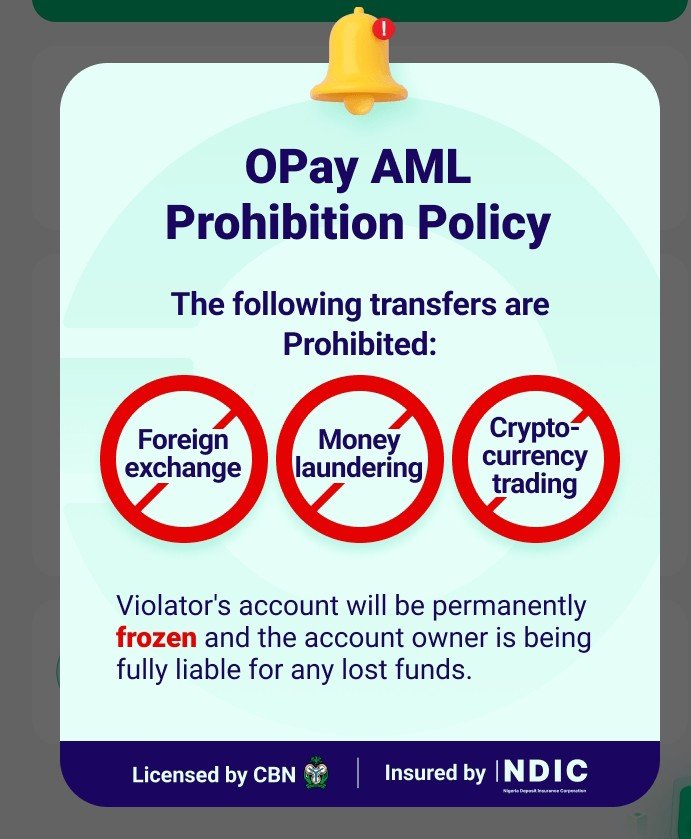Nigeria's Crypto Conundrum: Government's Battle Against Digital Currency
In recent years, Nigeria has emerged as one of the leading countries in crypto adoption and a
This has played a significant role in the global cryptocurrency market, I will a greater percentage of the Nigeria youth are I to crypto trading because of the high rate of unemployment in the country However, recently the government's stance on digital currencies has been a subject of contention between the them and the citizens with the recent moves indicating a tightening grip on crypto transactions within the country.

One of the most notable developments in this regard was the government's decision on Tuesday may 2024 to delist the naira from any peer-to-peer (P2P) platforms. This was after a serious decision was made by the world's largest cryptocurrency exchange, Binance, on May 8, which delisted the naira from its platform, it was a difficult action to take but the platform had to since the government took them to court laying a charge on them that rate at which the citizens involved in crypto has caused a manipulation of the local currency’s value in the foreign exchange market.
The Nigerian government's rationale behind these decisions stems from concerns over the potential risks associated with cryptocurrencies, including money laundering, terrorism financing, and consumer protection issues. To be specific the government said in the speech made by one of the house members that government money worth
$26 billion has been transferred through Binance exchange platform from sources and users who we cannot adequately identify.Additionally, the government fears that the growing popularity of digital currencies could has caused the untability of the traditional financial system and it has indirectly weaken the government's control over monetary policy, some months ago dollar was equal to #2000 and when naira was delisted from binance it suddenly dropped which made this allegation true.
However, the government assured its citizens that these measures could stifle innovation and economic growth in the country. Cryptocurrencies have gained popularity among young Nigerians. This one thing we must admit, it has been a means of conducting cross-border transactions, accessing financial services, and reducing the impact of inflation on their savings. By restricting access to digital currencies, the government risks alienating a significant portion of the population and hindering the country's progress towards financial inclusion, when the greater percentage of unemployed people are surviving through crypto trading what do you expect, this drastic decision by the government will cause a crackdown on the countries economy as Nigerian begins to leave the country to places where cryptocurrency is widely accepted and celebrated
It is obvious that crypto is evolving and expanding, getting more relevant as the day goes by and there is absolutely nothing anyone can do about it; rather , countries that embrace these digital currencies stand a good chance of benefiting from the increasing efficiency, transparency, and financial inclusion. By contrast, those that resist these changes risk falling behind in the global economic landscape and also hinders a Greater percentage of their youths from exploring and benefiting from the world of cryptocurrency.
It is not surprising that Nigeria is not the alone country in support of this regulation and citizens facing such challenges come with fast adoption of cryptocurrencies. Governments around the world are also struggling to strike a balance between embracing innovation and safeguarding against potential risks. Some countries have adopted a more permissive and safety approach, which gives them aid in harnessing the potential benefits of digital currencies while implementing a strong regulatory framework to fight anything associated with risks. Others have taken a more cautious stance, opting for stricter regulations or outright bans on cryptocurrency transactions, just this morning I received a notification from my online bank that shows a warning to me not to try anything related to crypto trading, stating if i go against that my account will be frozen, when I received this notification i was sad because it has really affected me, first was the binance and we managed our ways through no a total ban from involving myself in crypto. Right now I'm scared because the future of cryptocurrencies in Nigeria will depend on the government's ability to adapt to the changing of the digital economy and the wild adoption, While the current regulatory environment may cause some challenges for crypto traders and bloggers like me and businesses operating in the country, it also presents an opportunity for constructive dialogue and collaboration towards a more inclusive and sustainable financial ecosystem.
Posted Using InLeo Alpha
I like the fact that you pointed out that cryptocurrency is here and nothing no one can do about it. The Nigerian government is channeling the fight in the wrong direction. Lots of the youth are surviving through trading cryptocurrency.
Meanwhile, for me, I don't believe that it was the delisting of p2p from Binance that brought down the price of the dollar... If that was the case, then the naira would have been stable at some point, but it doesn't.
What the Nigerian government should do is that, they should strengthen the local currency the manufacturing of goods, and exporting same, reduce the rate of corruption as a well, and create an enabling environment for foreign and local investment.
Yeah that very correct I was expecting to see some good moves in naira but nothing different,the embrace innovation and implementing sound economic policies, with this Nigeria can chart a path towards a more resilient and prosperous future.
Thanks for stopping by
The government should be making efforts for not against the people 🤔
I wish they will
Yes absolutely